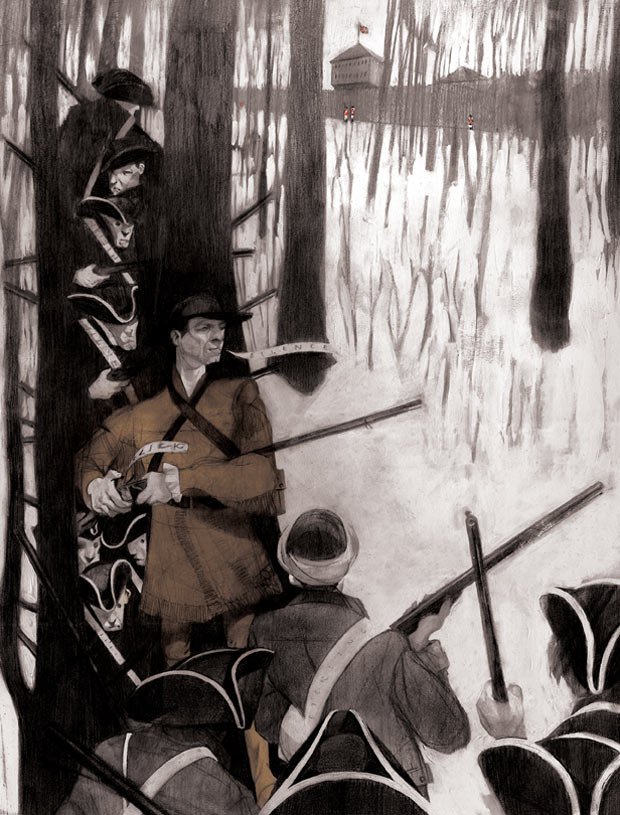Wherein illustrator Sterling Hundley spotlights an overshadowed sibling.

dep_bigbrotherhero
Wherein illustrator Sterling Hundley spotlights an overshadowed sibling.

dep_bigbrotherhero
Wherein illustrator Sterling Hundley spotlights an overshadowed sibling.
George Rogers Clark may live in the historic shadow of his younger brother, the much celebrated William Clark, of Lewis and Clark expedition fame, but big brother had significant accomplishments of his own. Beginning in May of 1778, Virginia-born General George Rogers Clark led about 175 Virginia militiamen through the Northwest territory on one of the most successful campaigns of the Revolutionary War. Clark’s poorly funded and under-trained militia conquered the British-held posts of Kaskaskia, Sackville and Vincennes; convinced many of the hostile, British-armed Indian tribes to transfer their support to the Americans; and served as the catalyst of the 1783 Treaty of Paris, which ended the Revolutionary War and nearly doubled the size of the 13 original colonies—all without the loss of a single soldier.
The frontiersman’s career and health faltered afterwards—his expeditions left him heavily in debt—but George Rogers Clark is credited with being the founder of Louisville, and Indian warriors never forgot the man they called “the great and invincible long knife.”








